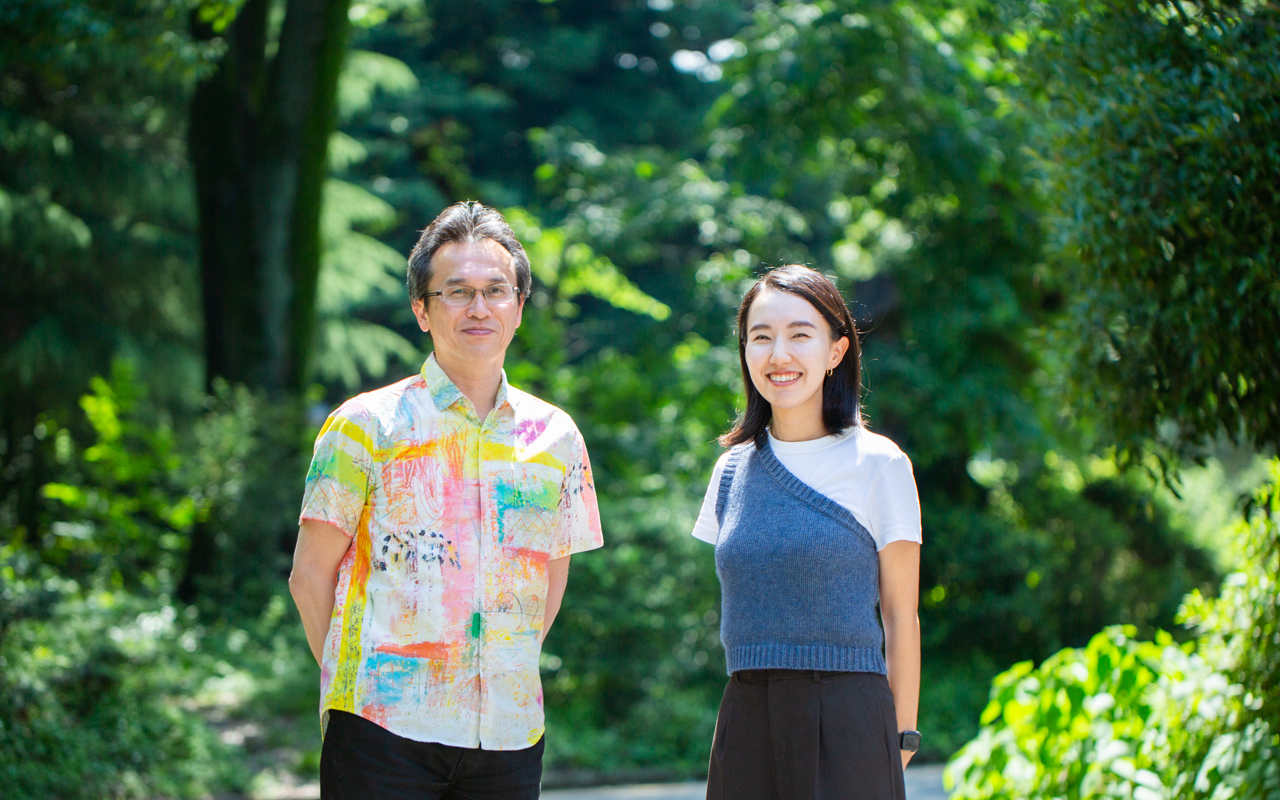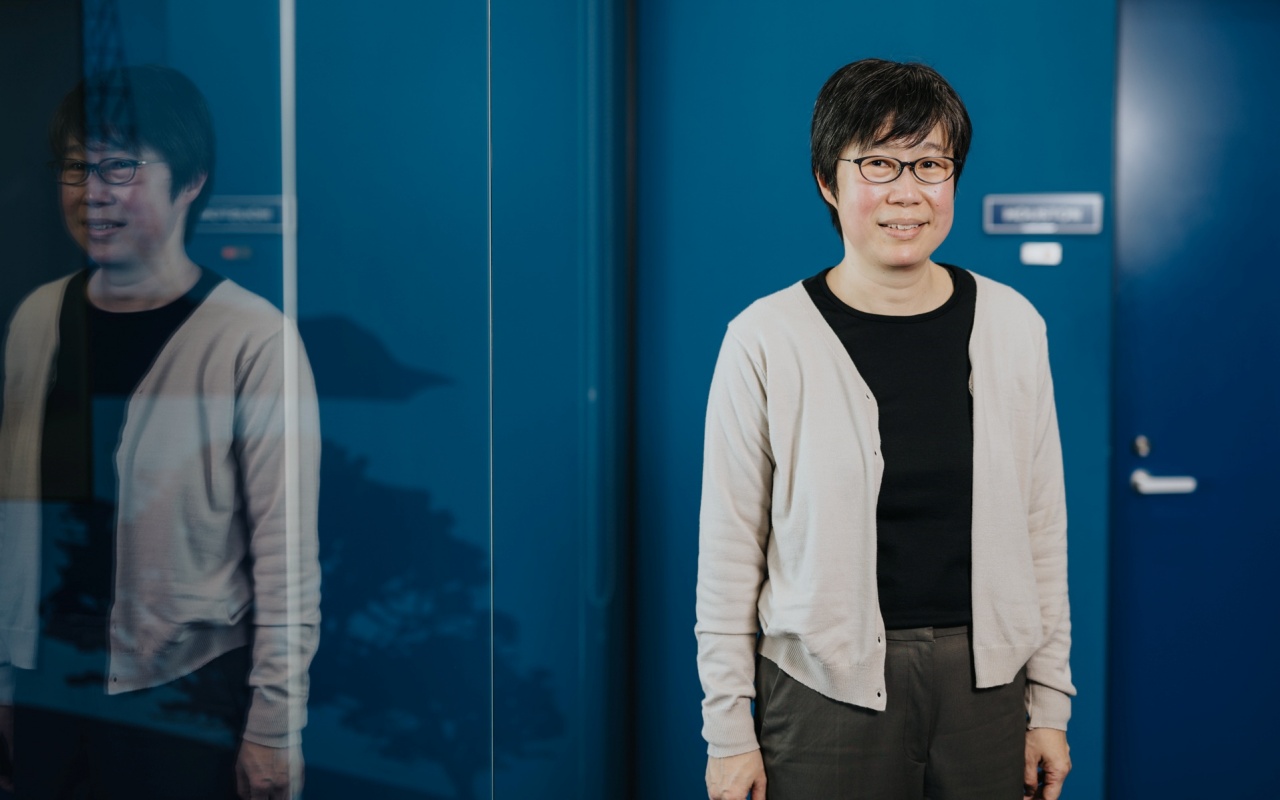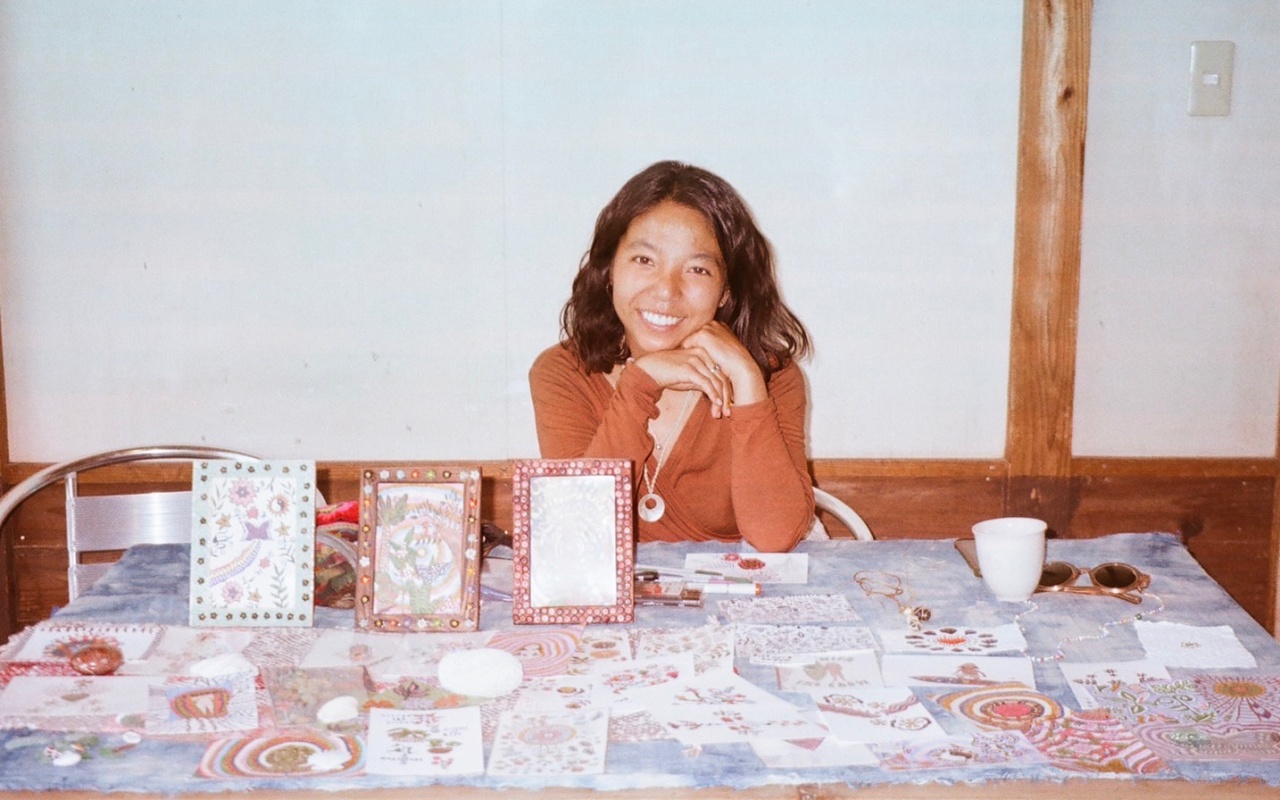Passion, Persistence and Teamwork: How I Made It in Japan as an Italian Manga Artist
Interview with Italian manga artist Peppe.
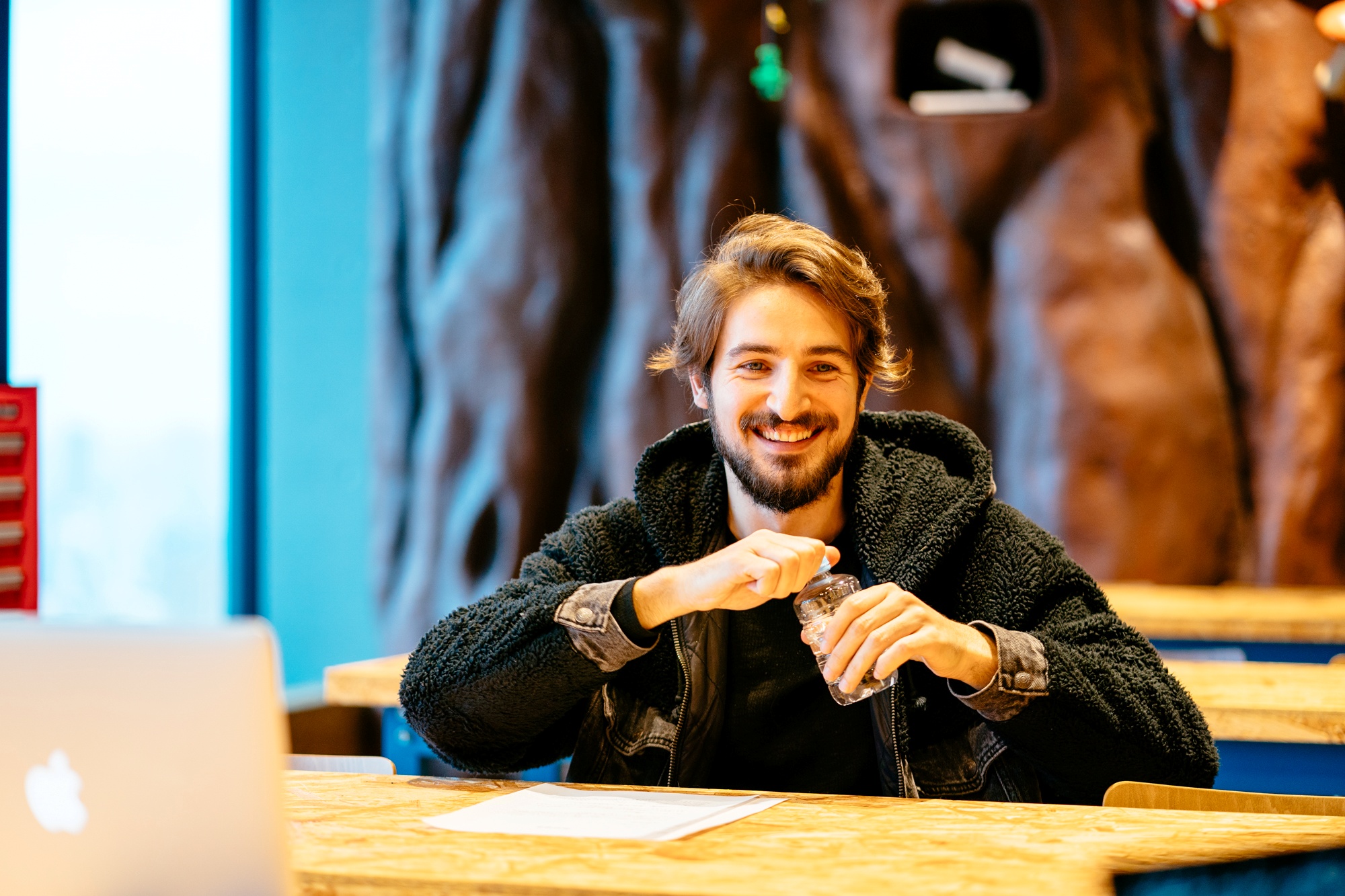
With immense global popularity of Japanese manga, countless fans have at least once held a volume in their hands wondering, "Could I make something like this?" Perhaps you're one of them! But how far did you go in pursuit of that idea?
We met up with someone who went all the way. Italian-born manga artist Peppe fell in love with manga as a teen and subsequently started drawing, moved to Japan, learned Japanese, and eventually became a published artist. Peppe's manga series "Mingo" pokes fun at the stereotypes to which Italians are often subjected abroad. We discussed about his journey to becoming a professional manga artist, the hardships he faced along the way, and how with dedication and teamwork, he is now living out his dream.
I figured I could be a manga artist too
Yukari: How did you first become acquainted with manga?
Peppe: My first encounter was coming across a volume of Naruto at a bookshop when I was 16 years old. The anime was hugely popular in Italy at that time, and I realized that the story was actually further along in the manga. It felt like I was getting an exclusive! (laugh) That's when I first realized that anime came from manga, so I bought the whole collection and read through it.
Some time after I began reading manga, for whatever reason, I started to believe that I could become a manga artist, or mangaka, as well. Here was this kid from deep in the Italian countryside, a three-hour drive from Rome, who didn't speak a word of Japanese, thinking he could be a mangaka. That's when, with my paperback manga volume by my side, I began to practice manga-style drawing.
I started having thoughts of quitting high school and moving to Rome to attend a specialized school for manga. I also considered moving to France or the U.S., but eventually realized that in Japan, even highschoolers were getting published in the prestigious Shonen Jump magazine; they were able to tell their own stories. I figured if I moved to Japan, perhaps I could tell my story too, so I did.
Before moving, I wanted to have a thorough understanding of Japan, so I enrolled in Japanese language studies at university. My desire to get things right was so extreme that I refused to go out with my friends for sushi until I felt like I properly understood Japan! (laugh) That motivation to learn about the culture meant that when I ultimately ended up living in Japan, I didn't feel any sort of culture gap. Things were exactly as I had expected, in a good way.
My first experience visiting Japan was a three-month exchange trip I did during university. To be able to graduate I knew I had to return to Italy, but in that short period of time it had felt like I'd experienced paradise, and I became really sad at the idea of having to return to the Italian countryside. (laugh)

The autumn of my graduation, I bought a one-way ticket. I had no friends, no plan, just the feeling that as long as I could make it to Japan, something would happen for me.
Japanese life and my debut as a mangaka
Yukari: How was life when you first arrived in Japan?
Peppe: At first I was living off working at a restaurant in Ginza and giving private Italian lessons. After that I picked up some modelling work, which was important since I'd come under a student visa, which wouldn't allow me to stay very long. Being a model got me an employment visa.
I would go to convenience stores and see a bunch of fashion magazines in which I was appearing. I remember wishing that instead of being in those magazines, I could be in the ones lined up next to them: the manga magazines. (laugh)
Yukari: A lot of mangaka publish online. Why were you so adamant to get into a magazine?
Peppe: Manga magazines have a history, and getting published in them comes with respect. I remember when working as a model, I was lucky to meet Kohei Hirokoshi, another respected mangaka who has been published in magazines. I showed him a piece of work I'd done and he praised it, which gave me confidence.
Thinking back, being able to find work as a model, and through that being able to meet Kohei Hirokoshi, I was really lucky on many levels. Had I not been as lucky, either money or visa issues would have probably forced me to go back to Italy.

Yukari: How did you go from there to making your debut as a mangaka?
Peppe: As soon as I'd finished drawing up a story that I didn't feel embarrassed sharing with the world, I called up the editors at Spirits (the manga magazine run by Shogakukan publishing house). It was probably the most nervous I'd ever been in my life. The conversation basically went:
"Hi, I'm Guiseppe, from Italy. I'd like to submit a manga for your magazine."
To which they replied, "Can you meet on Thursday?"
And just like that, I'd scored a meeting with a major Japanese publishing company. If I'd written my manga in Italy, I can't imagine the same thing happening with an Italian publishing firm! This may be a bit of a stereotype, but in Italian culture, who you are matters more than what you can do. But in Japan, all I had to do was make a phone call, and a publishing house as famous as Shogakukan was willing to make time to meet with me.
That meritocratic quality, wherein even if you're unknown, as long as you have talent you can do what you want to do, is something that I personally really admire about Japanese work culture. Their default is to trust you, and having that trust makes you want to do your best.
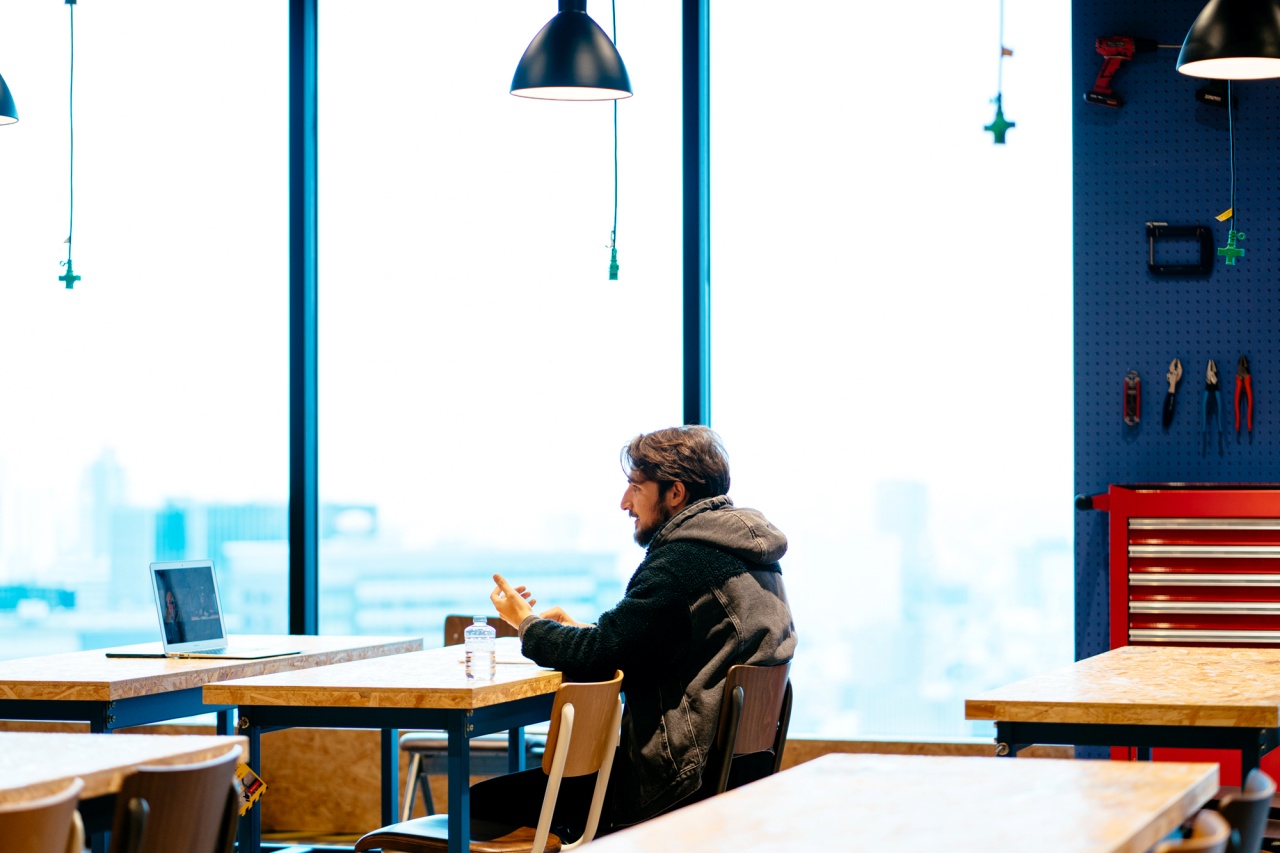
Yukari: So with just one phone call, you'd opened a path to getting into the Spirits magazine?
Peppe: It's crazy, isn't it? I made some corrections to the story I'd sent and I submitted to their contest, the Spirits award. One day I remember getting a phone call from an unknown number saying a bunch of things I didn't understand in Japanese, among which I was just about able to make out the words "award" and "received." I was overwhelmed, with tears in my eyes thinking, "I made it! I'm a mangaka!" The following day I went and found out that I'd received the smallest award possible, of about 10,000 yen (just under 100USD), but I was still happy.
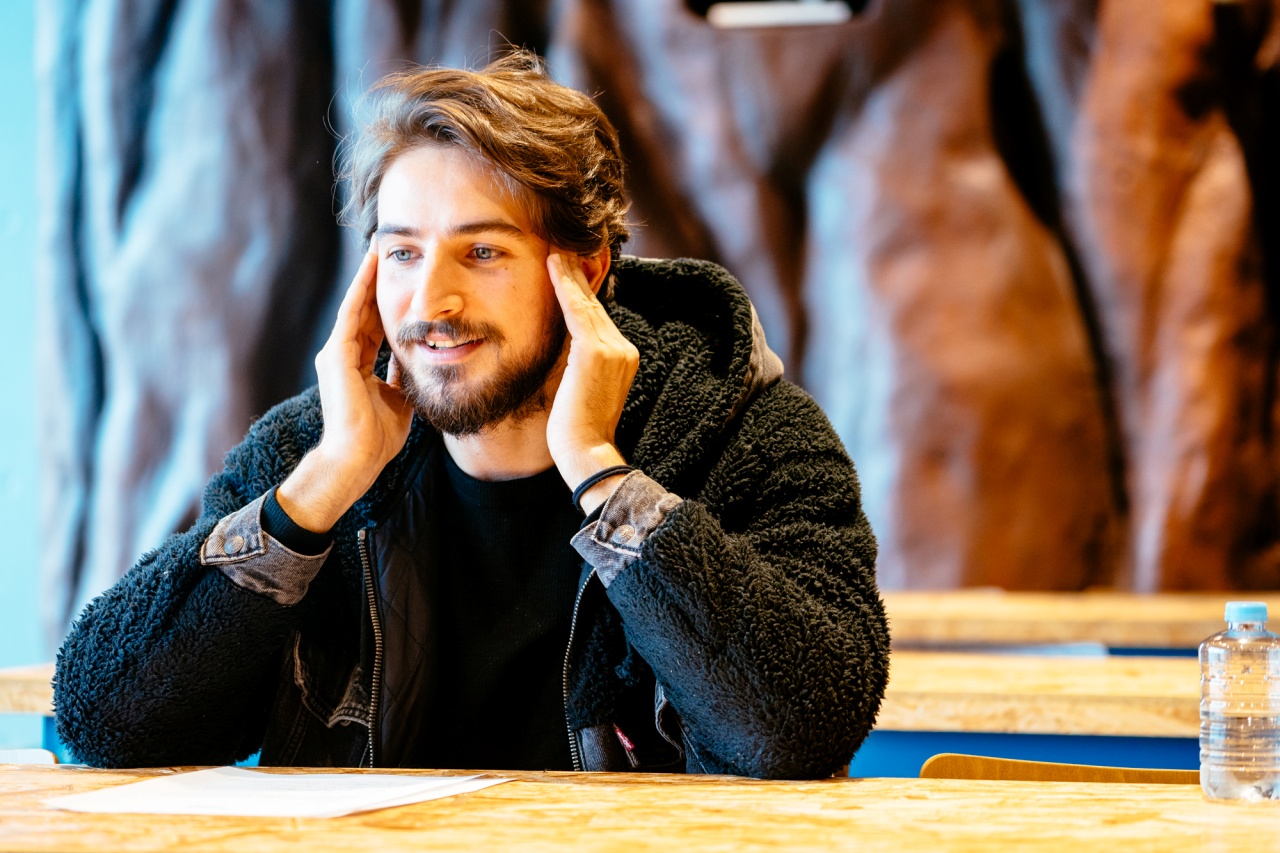
With my next story I received a bigger award of 50,000 yen. That's when I met the editor who would change my career as a mangaka, Mameno-san. He's a veteran manga editor with experience in foreign cultures, and was able to help me figure out the kind of story I would be in a unique position to write. I remember showing him a concept for a space mafia story, and he told me, "You know, you should make a manga about yourself. You're the one who's interesting." That's how my manga series, Mingo, started.
A story that only I could write
Yukari: Mingo is all about stereotypes. What kind of stereotypes have you encountered while living in Japan?
Peppe: The most common one I get is that people think Italians are frivolous, don't take their work seriously, and are not particularly concerned about arriving at their appointments on time. I make a point of always arriving early, so in that way I'm contributing to destroying that stereotype. (laugh)
Yukari: I can attest to that; you were early for today's interview! (laugh)
Stereotypes can be a heavy topic, but in Mingo you write about them lightheartedly. Why is that?
Peppe: Precisely because it's such a heavy topic! I think comedy is the best way to get as many people as possible to understand it. I did at first consider writing a more dramatic manga about the problems that foreigners face in Japan, but I realized that the readers who are willing to spend money on Mingo are probably already pretty open minded, and not the people who need to hear my message about stereotypes the most. (laugh)
So I decided to focus on the message that there are all kinds of Italians, including shy ones like myself.

Yukari: Have you seen any evidence that through your work, you were able to overturn people's stereotypes?
Peppe: Thanks to my audience, I have! Not just through Mingo, but around that period I also appeared on the famous Netflix reality TV show Terrace House, and through my activities I was able to get my message across in a way that got a huge response. There were a variety of reactions, but several Italians living in Japan and suffering from stereotypes told me that they were glad a non-stereotypical Italian like myself was on TV. I was really glad to hear that.
There were also a few negative reactions out there, but honestly, no matter how amazing the thing you create is, there will always be people out there who don't like it. As long as there's at least one person out there who buys Mingo and is glad they read it, that's enough for me to be happy.
Yukari: One of the great difficulties of being a foreigner is having to deal with stereotypes, but on the flip side, do you think there are areas in which being a foreigner has helped you in Japan?
Peppe: Oh yeah, for sure! That's why I'm working hard here in Japan! In Italy, I'm just another run-of-the-mill Italian, but here in Japan, as a rare member of the foreign community, I have a chance.
It's also something I take advantage of to stand out as a mangaka. There aren't really any other Italian mangaka, so there are plenty of topics that I'm in a unique position to write about. I took that into account when drawing my manga, and people enjoyed it. Looking back, I'm glad I kept asking myself what it was that only I could draw, since I believe everyone has their own story to tell.
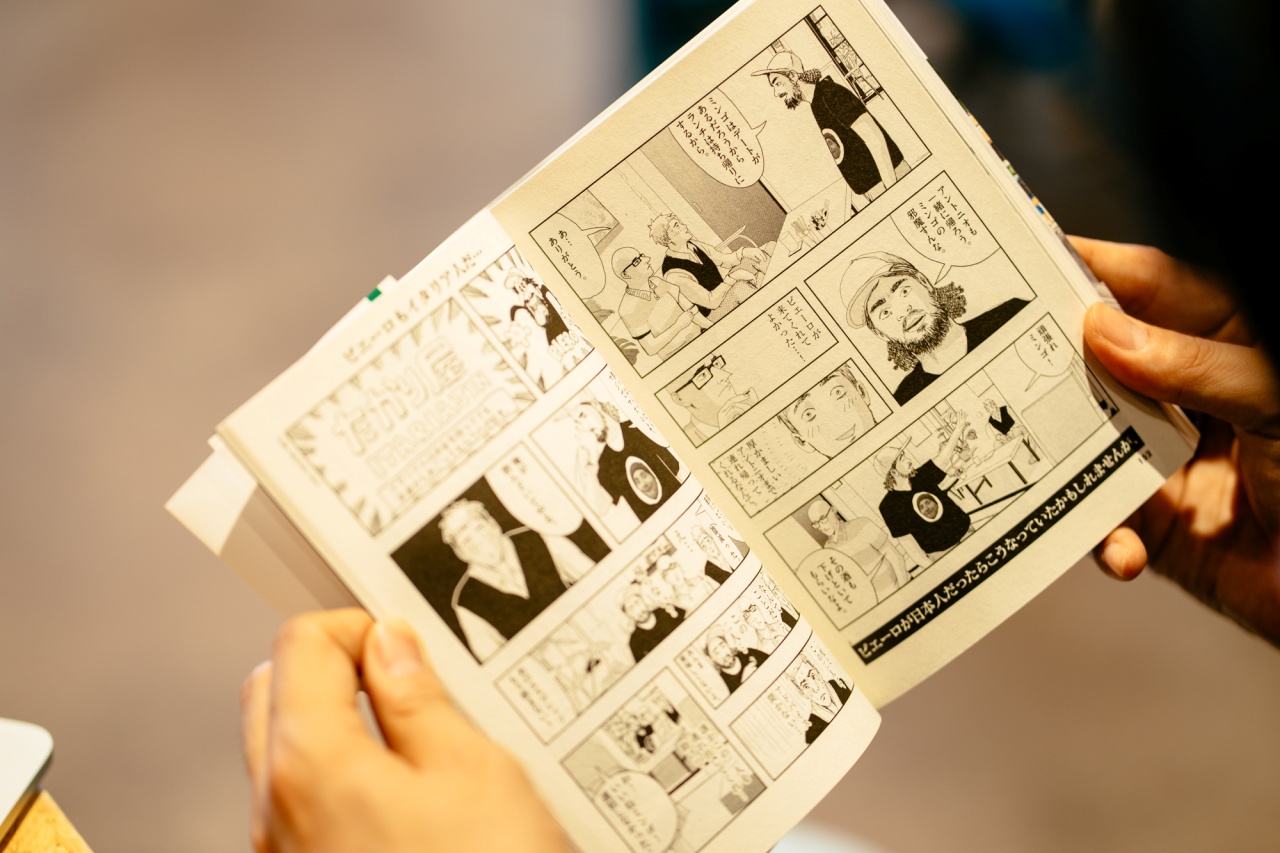
Peppe's manga series Mingo, available only in Japanese
Peppe: First you have to live, have fun, and try new things. I'm paraphrasing the words of famous Italian comic book artist Hugo Pratt. Don't just stay home and spend all day drawing, actually go out and meet a variety of people, because those new experiences you create will all link back to your story. If I hadn't come to Japan and worked as a model, there would be no Mingo, and I probably wouldn't have become a mangaka.
To become a mangaka, you have to overcome barriers and work as a team
Yukari: Are there times when you found it hard to express yourself due to the particularities of Japanese culture or the industry you work in?
Peppe: Of course. Everybody thinks that creating manga is a solitary job, when in fact behind every manga there's a managing editor and an editor in chief. Even the most famous mangaka aren't all that free.
There are people who believe that because they are the artist, they can categorically refuse to acknowledge other opinions and never change what they've drawn. I don't think those kinds of people can become professional mangaka. If you don't listen to others' opinions, it's unlikely you'll ever end up with a finished product, and at the end of the day, you won't sell. If you want to work entirely on your own, your only real option is to put your comics online and sell them there. Honestly, the need for teamwork isn't limited to manga and Japan.
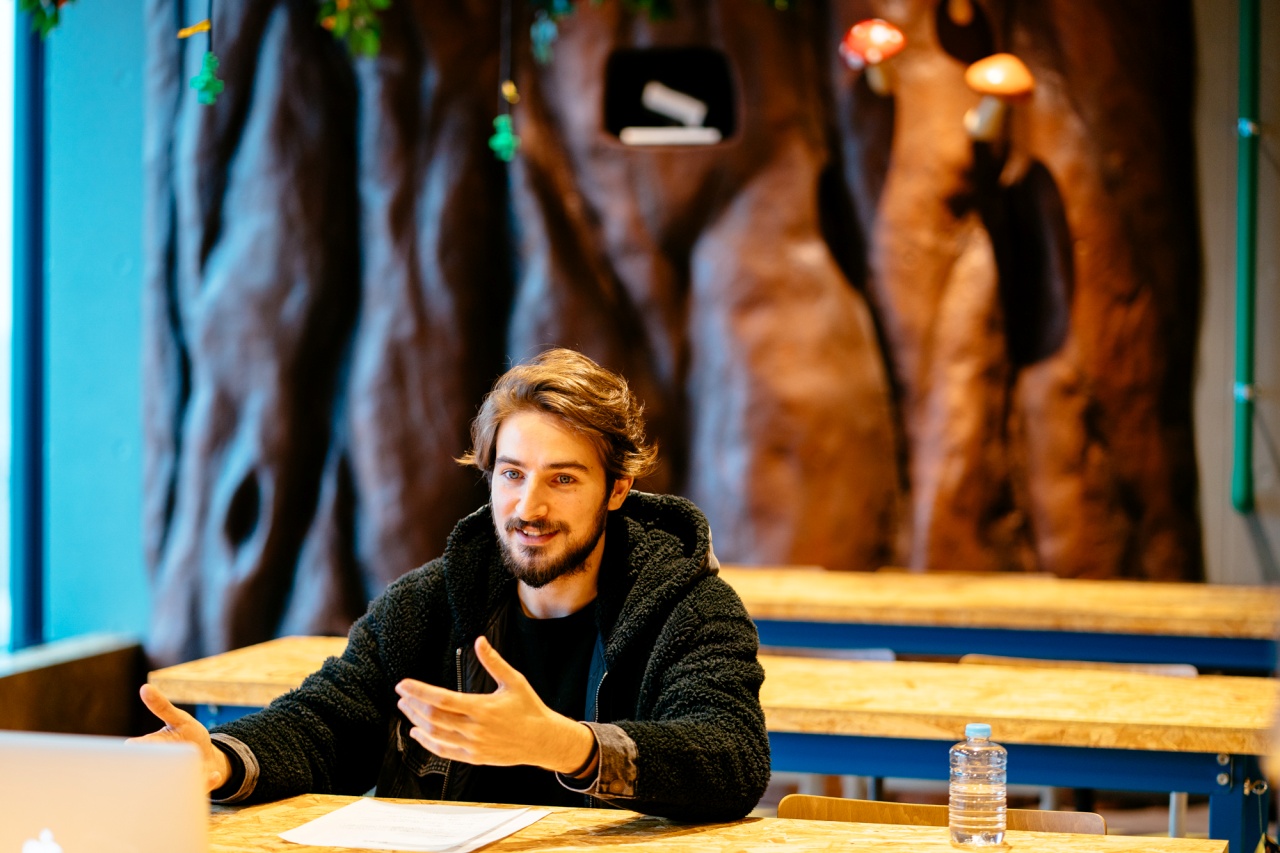
Having understood that important truth, I decided to have fun with it and create something that I would want to read. If you don't start from there, things get tough from the get-go and you end up despising your work. On top of that baseline, you then add the points of view of your readers and editors. That's how you achieve a balance between what you want to write and what your readers want to read.
Yukari: Can you tell me specifically about the process you and your editor went through to make Mingo?
Peppe: Once a week, I get together with my managing editor and based on my ideas, we have a conversation about topics and punchlines. Then, I go back home and make that into a storyboard. While I'm drawing, I send messages to my editor with my ideas so that he can give his confirmation. Once my storyboard is finished, I send it off, to which I usually get a reply saying most of it got rejected. (laugh) What can I say, I'm still a beginner making my way through the learning process!
The work of a mangaka demands extreme precision. You have to keep in mind how your reader will gaze across the page as you position every single panel. I'm spending lots of time reimagining and reworking every page to perfection, whereas the reader is going to breeze through the whole volume in no time. That's just the way it is. (laugh)
Yukari: When releasing a new volume of your manga every week, it feels like there's no time to rest. What do you do if you get stuck in a rut feeling like you no longer want to draw?
Peppe: It's no fun when wanting to draw turns into having to draw. As the first volume of Mingo was coming out, my appearance on Terrace House happened to coincide with the launch event. It was a really busy time. Towards the end of the year, I returned to spend some time in my hometown in Italy, throughout which I had to keep working on my manga. It was tough. Luckily I was able to combine end-of-the-year vacation with the time off from my series and I took a week off to travel and refresh.
Publishing a weekly manga series is really something only hardcore manga lovers can do.

Yukari: Given the added challenge of the language barrier, is there anything you had to keep in mind in order to make sure communication with your editors went smoothly?
Peppe: I feel like just in order to have an earnest conversation about my stories, my mental energy gets depleted twice as fast as normal. (laugh) In order to make up for my limited vocabulary, I prepare memos on the story I know I'm going to have to explain. If I get stuck on what to say during a meeting, I look at those memos, because I know that if I'm unable to tell my managing editor what I'm trying to say, I won't be able to create the following week's manga.
Also people's sense of humor and the way you make jokes is completely different between Japan and Italy. The kind of jokes I would tell my friends in Italy just wouldn't work in Japan, because even the basic expressions and phrasing I'd use just aren't there. (laugh) Comedy is hard, even in your mother tongue.

Manga changed my life for the better
Yukari: How do you see your profession changing in the future?
Peppe: Due in part to the influence of coronavirus, manga will gradually become more digitized. If you get rid of the limit to how many pages you can have, then the way we make serialized manga and the concept of cancellation will fundamentally change. There are no more production or distribution costs, so artists will be able to make a living even off of relatively few readers. As a result, I think we're bound to see more mangaka and more manga series moving forward.
I believe these trends constitute an opportunity for foreign artists. They'll still have to learn Japanese language and culture, but instead of coming to Japan from far away, they can just draw at home and hold meetings over Zoom. If you want a mock experience of living in Japan, you can easily get it just by reading Mingo. (laugh)
Yukari: You've spoken about the advantages of depicting a complicated subject in a lighthearted way, but are there also disadvantages in getting your message across?
Peppe: Whether it's in manga or other forms of entertainment, to an extent getting your message across will depend on your reader's intelligence. That applies to comedy. An extreme example is Borat, where by acting very over the top, he tries to get a certain message across. There will always be quite a lot of people who watch his content and just laugh without getting the deeper meaning.
The easiest way to convey meaning is by using clear language, whereas I'm trying to accomplish that same goal through manga. Even if I'm not 100% successful, I hope my manga can at least have some positive influence.

Yukari: What effect have manga and your job as a mangaka had on your life?
Peppe: Manga changed my life, both as a reader and a mangaka. There are plenty of people out there who got into basketball after reading Slam Dunk, or into American football from Eyeshield 21. That's the power of manga.
One thing I've realized since becoming a manga artist is that what I really want to do is to use my ideas and storytelling to convey emotions. That's why I'm also interested in other media, like film and music—although I'll be making manga until the day I die. The kind of art you can make just by having a pencil and a piece of paper will always be closest to my heart.
Yukari: It seems like your readers now expect that your next manga will also be something that only you, Pepe from Italy, can create. Do you feel pressure from that?
Peppe: I feel pressure especially now that I've finished publishing a series. I have to put a lot of thought into what is it that only I can make and that will also be interesting for a Japanese audience to read. It seems like the only way is to create a manga that has something to do with the relationship between Italy and Japan. I'm planning on getting to work on my next series next year, so now I'm in the process of collecting my thoughts.
Yukari: My final question: Are you happy with the way your life is going in Japan?
Peppe: I'm the happiest I've ever been. Since I decided at age 16 that I was going to be a mangaka, I've been carrying a heavy burden on my back, but I've finally reached a place where I can go to a restaurant and pay for my meal thanks to the manga I made. That alone makes me happy. Honestly, it's almost unbelievable to me that a country as comfortable as Japan could even exist. I can really relax and focus here, so naturally, it's the easiest place for me to live and work.
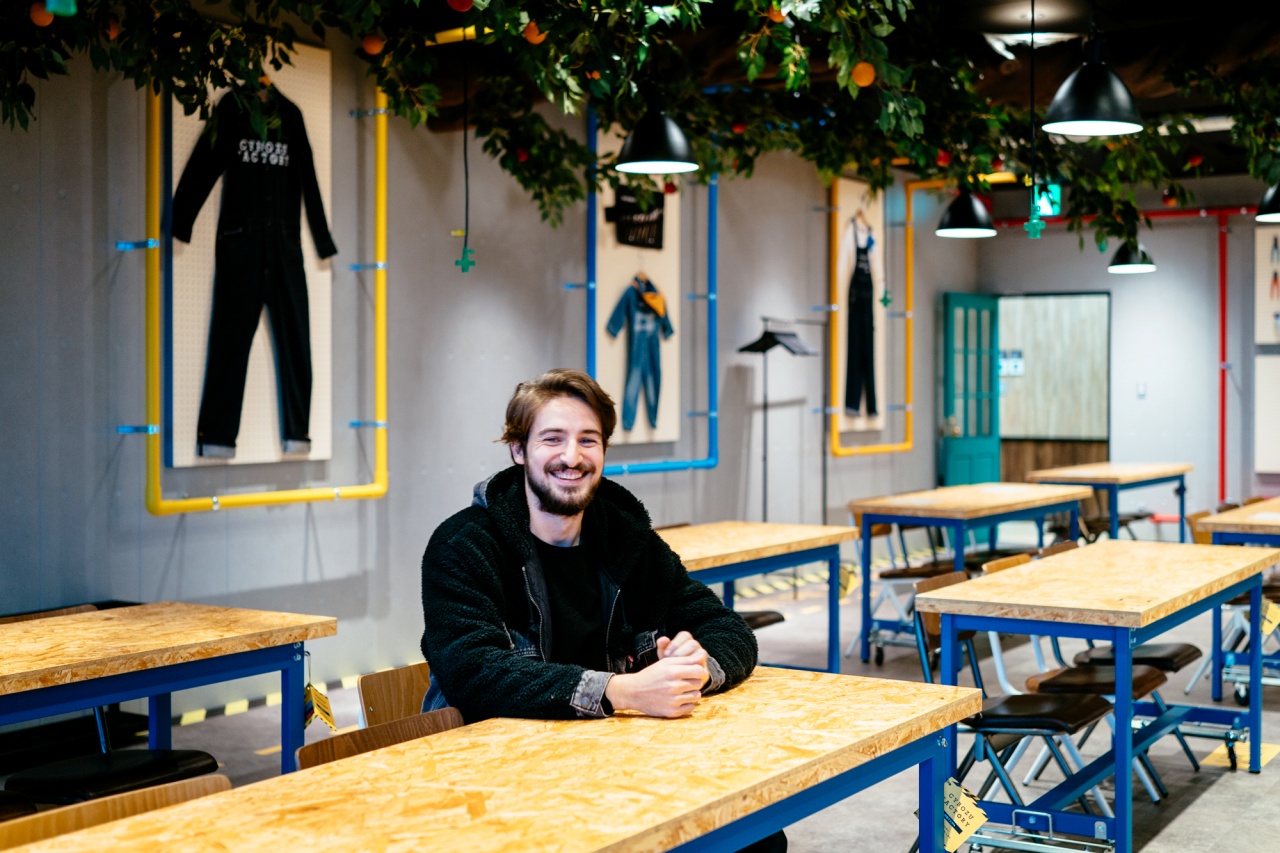
Written in Japanese by Yukari Mitsuhashi. Translated into English by Alex Steullet. Edited by Alex Steullet, Ade Lee and Mina Samejima. Photographs by Hajime Kato.
Writer
Photographer
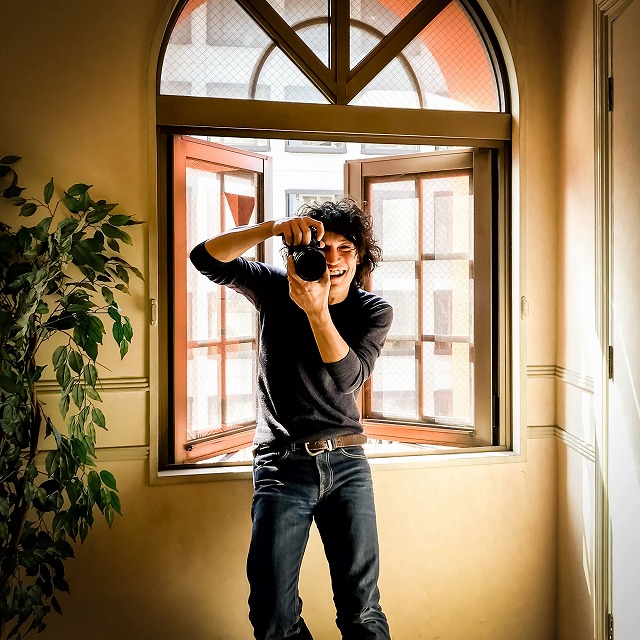
Hajime Kato
Hajime Kato is a Japanese freelance photographer. He has experience conducting photography projects from the planning phase to execution, for a variety of media. The scope of his work varies from small art projects to mid and long-term "artist in residence" projects.
Editor

Alex Steullet
Alex is the editor in chief of Kintopia and part of the corporate branding department at Cybozu. He holds an LLM in Human Rights Law from the University of Nottingham and previously worked for the Swiss government.
